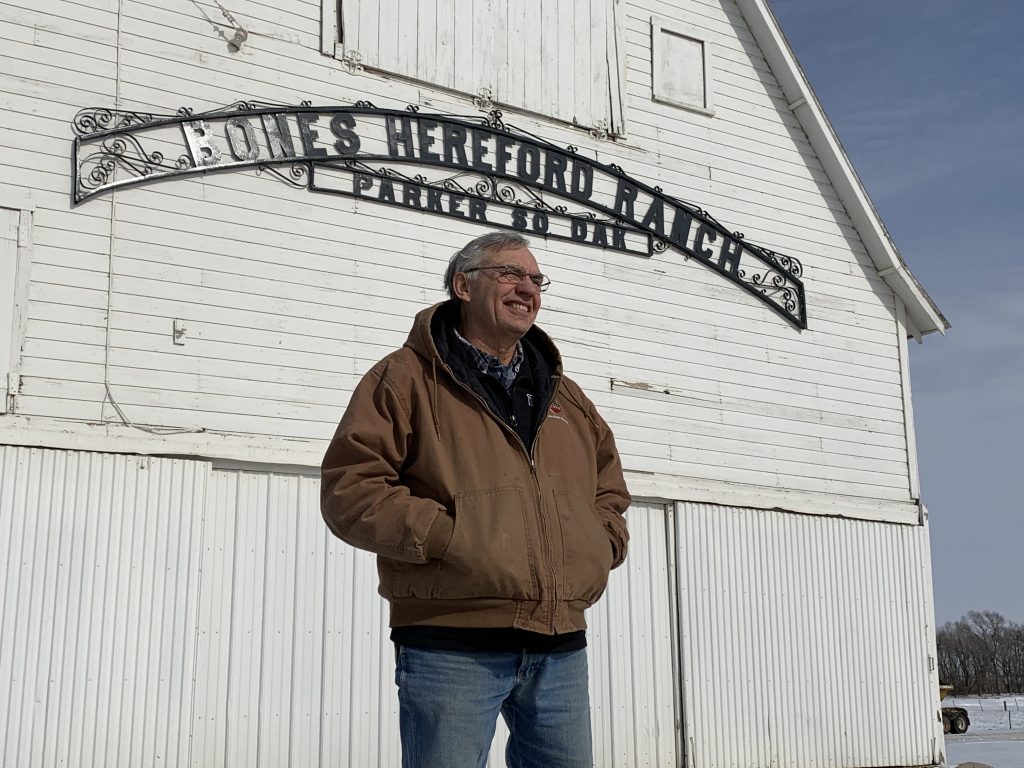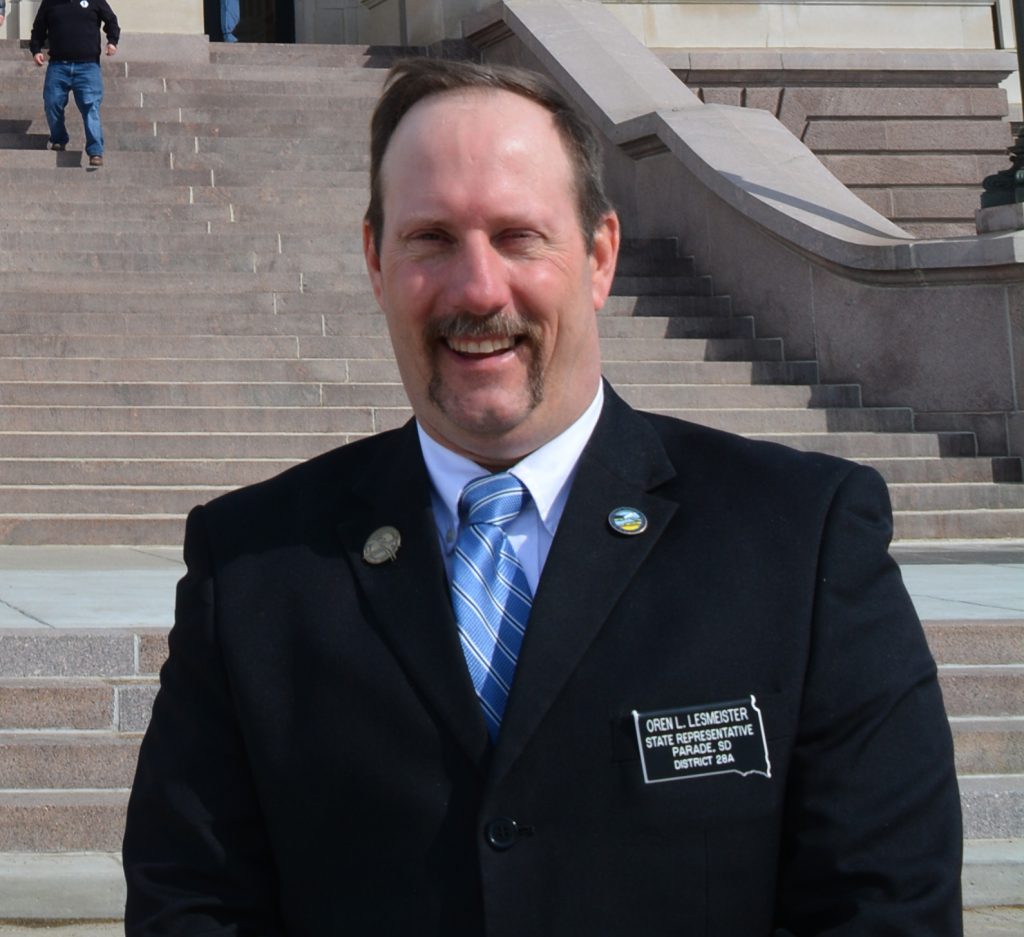Fewer Ag Producers in State Legislature Means More Producers Need to Make Their Voice Heard

Twelve. Of the 105 citizen legislators serving in South Dakota’s House and Senate, only 12 earn their income from production agriculture.
What does this mean to the many family farmers and ranchers who work in South Dakota’s No. 1 industry? “We’ve got to do our due diligence to make sure that legislators and other citizens understand where their food products come from and that they are safe and we are raising their food in an environmentally-friendly way,” says Oren Lesmeister, District 28-A Representative and a Parade rancher and feed store owner.
As one of the 12, Lesmeister says he enjoys serving as a resource to other legislators when policy impacting agriculture is on the floor. “Those of us who do farm and ranch are always ready to educate and inform other legislators to make sure they understand the real-world impact of the things they want to pass will have on farmers and ranchers.”

Lesmeister adds that as citizen legislators, each session there is a diversity of backgrounds represented, and most legislators are more than eager to serve as a resource.
Sharing information and input on policy is one of the aspects of serving in the South Dakota Legislature Jim Burg enjoyed most. “I liked the fact that no issue is ever cut and dry. When I served, we were almost an even split, so you had to convince people in order to get a bill passed,” says Burg, a retired Wessington Springs farmer who served in the Legislature from 1975 to 1986. “When you have a lopsided political agenda, you don’t ever hear that other side, and people who are on the majority side are afraid to contest their own party members. That is why you need the other side to contest.”
Burg set a goal as an eighth grader to serve in the South Dakota Legislature. “I can remember plain as day, we were studying the State Legislature and I said, ‘someday I want to do that.’”
Since there are fewer legislators with agriculture backgrounds today, Burg calls on those who work in farming and ranching to develop relationships with their local legislators. “Personal stories matter. Paid lobbyists cannot have the same impact because they do not have the personal experience.”
Connecting with urban legislators is a focus Walt Bones takes seriously. Each harvest, the Turner County farmer and former South Dakota Secretary of Agriculture invites legislators or county commissioners to ride in the combine with him. “It is a nice comfortable environment to just talk and establish a relationship. My parting pitch is that if there is something that comes up and they need an opinion, they can reach out. And if I am not an expert, I can surely find someone who is.”
Bones says agriculture producers need to make sure their story is heard.
“If you are not at the table, you are quite possibly on the menu,” Bones says. “If there is a seat at the table, it is going to get filled. If it is not filled with someone advocating for agriculture, it may be someone who is trying to take us in a different direction.”
Growing up, Bones’ parents encouraged civic engagement. He and his siblings followed suite, serving on the Township Board, County Commission and Rural Water Board. “We as South Dakotans have an amazing opportunity for input into how our state is governed.”
Bones lists off the many opportunities: 105 legislators, 65 county governments, 913 township boards and more than 120 state boards and commissions.
“And these don’t count the grassroots farm organizations,” Bones says.
Burg agrees. “If you have a passion to have a better state and have laws to help everybody, you should run,” he says.
This is exactly how Ryan Maher found his way into state government. “I did an internship at the Capitol in 1998, when I was in college and I fell in love with the process,” says the District 28 Senator.
This is the 13th year he has served. And as the number of legislators who currently farm or ranch or were raised on a farm or ranch shrinks, Maher is concerned about the direction policy is going.
“We are an agriculture state, so it is important that we have legislators who have an understanding of what it means to be an independent cattle producer. We see language coming through that is more for CAFOs, but in western South Dakota we are still independent ranchers, and we need our voice to be heard,” explains Maher, who grew up on his family’s ranch near Isabel.
Although Maher does not earn his income from the family ranch, he is an insurance agent, he remains closely connected to its day-to-day operations. He says if someone is interested in serving, spending time in Pierre is a good place to start.
“Be engaged. Start learning the process. Spend a few days sitting in on sessions and committee meetings.”
And whether or not serving in local, county or state government is for you, Maher, Burg, Bones and Lesmeister remind agriculture producers to reach out to their representatives when an issue impacts agriculture.
“We need more voices,” Lesmeister says. “We’ve got to teach, educate and plant the seed – no pun intended.” South Dakota Farmers Union has many resources on its website to help family farmers and ranchers share their thoughts with state Legislators. To learn more, visit www.sdfu.org and click on the Legislation tab.

